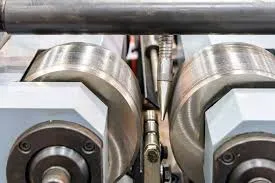
-
 Afrikaans
Afrikaans -
 Albanian
Albanian -
 Amharic
Amharic -
 Arabic
Arabic -
 Armenian
Armenian -
 Azerbaijani
Azerbaijani -
 Basque
Basque -
 Belarusian
Belarusian -
 Bengali
Bengali -
 Bosnian
Bosnian -
 Bulgarian
Bulgarian -
 Catalan
Catalan -
 Cebuano
Cebuano -
 Corsican
Corsican -
 Croatian
Croatian -
 Czech
Czech -
 Danish
Danish -
 Dutch
Dutch -
 English
English -
 Esperanto
Esperanto -
 Estonian
Estonian -
 Finnish
Finnish -
 French
French -
 Frisian
Frisian -
 Galician
Galician -
 Georgian
Georgian -
 German
German -
 Greek
Greek -
 Gujarati
Gujarati -
 Haitian Creole
Haitian Creole -
 hausa
hausa -
 hawaiian
hawaiian -
 Hebrew
Hebrew -
 Hindi
Hindi -
 Miao
Miao -
 Hungarian
Hungarian -
 Icelandic
Icelandic -
 igbo
igbo -
 Indonesian
Indonesian -
 irish
irish -
 Italian
Italian -
 Japanese
Japanese -
 Javanese
Javanese -
 Kannada
Kannada -
 kazakh
kazakh -
 Khmer
Khmer -
 Rwandese
Rwandese -
 Korean
Korean -
 Kurdish
Kurdish -
 Kyrgyz
Kyrgyz -
 Lao
Lao -
 Latin
Latin -
 Latvian
Latvian -
 Lithuanian
Lithuanian -
 Luxembourgish
Luxembourgish -
 Macedonian
Macedonian -
 Malgashi
Malgashi -
 Malay
Malay -
 Malayalam
Malayalam -
 Maltese
Maltese -
 Maori
Maori -
 Marathi
Marathi -
 Mongolian
Mongolian -
 Myanmar
Myanmar -
 Nepali
Nepali -
 Norwegian
Norwegian -
 Norwegian
Norwegian -
 Occitan
Occitan -
 Pashto
Pashto -
 Persian
Persian -
 Polish
Polish -
 Portuguese
Portuguese -
 Punjabi
Punjabi -
 Romanian
Romanian -
 Russian
Russian -
 Samoan
Samoan -
 Scottish Gaelic
Scottish Gaelic -
 Serbian
Serbian -
 Sesotho
Sesotho -
 Shona
Shona -
 Sindhi
Sindhi -
 Sinhala
Sinhala -
 Slovak
Slovak -
 Slovenian
Slovenian -
 Somali
Somali -
 Spanish
Spanish -
 Sundanese
Sundanese -
 Swahili
Swahili -
 Swedish
Swedish -
 Tagalog
Tagalog -
 Tajik
Tajik -
 Tamil
Tamil -
 Tatar
Tatar -
 Telugu
Telugu -
 Thai
Thai -
 Turkish
Turkish -
 Turkmen
Turkmen -
 Ukrainian
Ukrainian -
 Urdu
Urdu -
 Uighur
Uighur -
 Uzbek
Uzbek -
 Vietnamese
Vietnamese -
 Welsh
Welsh -
 Bantu
Bantu -
 Yiddish
Yiddish -
 Yoruba
Yoruba -
 Zulu
Zulu
Advanced Custom Screw Thread Rolling Machines for Precision Manufacturing Solutions and Enhanced Efficiency
Custom Screw Thread Rolling Machine Revolutionizing Precision Manufacturing
In today’s fast-paced manufacturing environment, precision and efficiency are non-negotiable. One of the most significant advancements in this field is the development of custom screw thread rolling machines. These machines enhance the production of high-quality screw threads, offering manufacturers a reliable solution for achieving tight tolerances and superior surface finishes.
Understanding Thread Rolling
Thread rolling is a cold-forming process that involves the deformation of material to create threads on metal rods. Unlike traditional methods such as cutting or machining, thread rolling allows manufacturers to produce threads without removing material, resulting in a more efficient and sustainable process. The method uses cylindrical dies that press against the workpiece to form the desired thread shape, taking advantage of the material's ductility.
Advantages of Custom Screw Thread Rolling Machines
Custom screw thread rolling machines are designed to meet the specific needs of manufacturers, providing several key advantages
1. Precision Engineering The primary benefit of these machines is their ability to produce highly precise threads. Custom machines can be tailored to specific thread dimensions, ensuring that every screw produced meets exacting standards. This level of precision is critical in industries such as automotive, aerospace, and electronics, where safety and functionality depend on tight tolerances.
2. Enhanced Strength The cold-forming process of thread rolling increases the material's strength compared to machined threads. The workpiece material undergoes a grain flow alignment, which enhances the mechanical properties of the screw threads. As a result, rolled threads are often stronger and more resistant to wear, making them ideal for high-stress applications.
custom screw thread rolling machine

3. Cost Efficiency Custom screw thread rolling machines can significantly reduce production costs. By minimizing material waste and eliminating the need for secondary operations, manufacturers can achieve a lower cost per unit. The increased speed of production also contributes to cost savings, as the machines can handle high volumes with less downtime.
4. Versatility These machines are highly adaptable, capable of producing a variety of thread types and configurations. Whether it's metric, imperial, or specialized threads, custom machines can be designed to accommodate different standards, making them suitable for diverse applications across numerous industries.
5. Improved Surface Finish The thread rolling process provides a superior surface finish compared to traditional cutting methods. The resulting threads have fewer burrs and imperfections, reducing the need for post-processing treatment. This quality aspect enhances the product’s overall performance and can improve assembly processes.
The Future of Custom Screw Thread Rolling Machines
As the manufacturing landscape continues to evolve, so too does the technology behind custom screw thread rolling machines. Innovations such as automation and smart manufacturing are being integrated into these machines, allowing for real-time monitoring and adjustments during production. This not only improves efficiency but also ensures consistent quality across batches.
Moreover, the push towards sustainability in manufacturing is driving the development of energy-efficient designs and processes. Custom screw thread rolling machines are increasingly being manufactured with eco-friendly materials and technologies to minimize their environmental impact while enhancing productivity.
Conclusion
In conclusion, custom screw thread rolling machines are transforming the manufacturing of screw threads by offering unparalleled precision, strength, efficiency, and versatility. As industries continue to demand higher quality and lower production costs, the role of these machines will only become more critical. Manufacturers who invest in this innovative technology position themselves at the forefront of industry progress, ready to meet the challenges of tomorrow’s manufacturing landscape.
